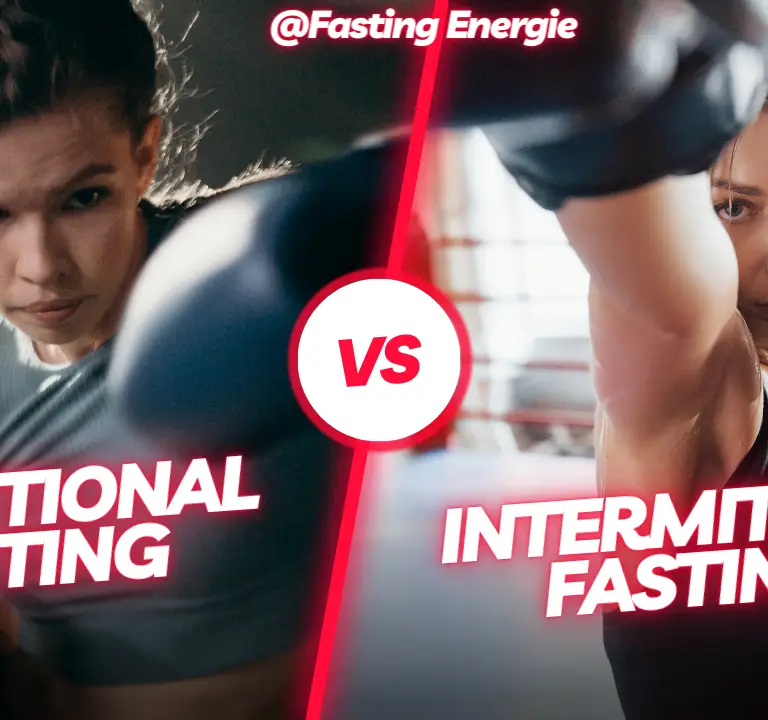6 Expert Secrets to Maintain Weight Loss After Intermittent Fasting!
Table of Contents

Introduction
An Overview of the Challenges of Maintaining Weight Loss
Maintaining weight loss is frequently more difficult than losing weight in the first place. Many people who lose weight eventually regain it, which can be disappointing and demoralising. This issue is largely due to the body’s physiological responses to weight reduction, which include a decrease in metabolic rate and changes in hormone levels that enhance appetite. Furthermore, behavioural and environmental factors play an important role, as old behaviours and lifestyle patterns can quickly reappear.
The Role of Intermittent Fasting in Sustainable Weight Management
Intermittent fasting has been recognised as a technique for both weight loss and weight maintenance. Intermittent fasting helps people manage their weight on a long-term basis by changing eating habits and boosting metabolic health. It promotes the body to use fat as its major energy source, improves insulin sensitivity, and may lead to a more mindful eating style. These benefits can be critical in helping people maintain their weight loss over time.
Understanding Weight Loss and Maintenance
Psychological Aspects of Weight Loss Maintenance.
The psychological variables involved in weight loss maintenance are important but often disregarded. Weight control is a mental problem as well as a physical one.
- Self-Regulation and Discipline: Maintaining weight loss necessitates regular self-monitoring of eating and activity behaviours.
- Motivation: Maintaining the initial motivation might be difficult when the excitement of early weight reduction fades.
- Emotional Eating: Understanding and regulating the emotional triggers that cause overeating is critical for long-term weight management.
Physiological Changes Following Weight Loss
Significant weight reduction causes profound physiological changes, which might make maintaining weight loss difficult.
- Lower Basal Metabolic Rate (BMR): As you lose weight, your body requires less calories to function than it would at a greater weight, slowing weight loss and making weight maintenance difficult.
- Hormonal adjustments: Weight reduction can have an impact on hormone levels that govern appetite and satiety, such as leptin (which regulates energy balance and inhibits hunger) and ghrelin (often known as the “hunger hormone”). After losing weight, leptin levels drop, which might stimulate appetite.
- Changes in Energy Expenditure: After losing weight, the body often becomes more energy-efficient, requiring less calories to complete the same activities, necessitating additional modifications in calorie intake or activity levels to avoid weight rebound.
Key Strategies for Maintaining Weight Loss:
Transitioning from Intermittent Fasting to Regular Eating
The successful transition from intermittent fasting to a regular eating pattern is critical for maintaining weight loss. Here are some strategies for making this transition smoother:
- Gradual Transition: Instead of suddenly discontinuing a fasting regimen, gradually extend the eating window. This allows the body to adjust without generating severe metabolic changes or unexpected increases in appetite.
- Mindful Eating Practices: Maintain mindful eating by paying attention to hunger signs and quitting when full. This promotes a balanced connection with food and discourages overeating.
- Structured Meal Timing: Set regular meal times to stabilise blood sugar levels and efficiently regulate hunger, which can help you avoid binge eating or snacking on unhealthy foods.
Balancing Calorie Intake and Energy Expenditure
Maintaining a balance between calories consumed and calories burned is critical to maintaining weight loss.
- Tracking consumption and Output: Use apps or journals to monitor your dietary consumption and physical activity. This responsibility keeps you informed of your daily caloric balance.
- Adjusting as Needed: Be ready to change your calorie intake as you lose weight. As your body weight lowers, so will your energy needs. Regularly analyse and adjust your calorie requirements based on your current weight and level of activity.
- Consistent Physical Activity: Add frequent exercise to your regimen to boost your energy expenditure. This not only helps to burn calories, but it also increases metabolism and muscle mass, both of which are necessary for weight loss maintenance.
Nutritional Guidelines for After Fasting
Macronutrient Ratios to Maintain Weight Loss
Optimising macronutrient balance is essential for maintaining weight loss.
- Protein: A high protein intake is necessary since it helps maintain muscle mass, enhances satiety, and requires more energy to process than fats or carbohydrates. Aim for 25-30% protein in your calorie intake.
- Fats: Include healthy fats in your diet to increase satiety and support hormonal health. Avocados, almonds, seeds, and olive oil are all healthy.
- carbs: Select complex carbs that contain fibre and nutrients, such as whole grains, legumes, and vegetables. These contribute to stable blood sugar levels and give prolonged energy.
The Importance of Micronutrients in Weight Management
Micronutrients are essential for sustaining metabolic health and supporting the body’s physiological activities.
- Vitamins and Minerals: Consume a proper amount of vitamins and minerals to support metabolic functions, immunological function, and overall health. Nutrients such as vitamin D, magnesium, and iron are very important for energy metabolism and can affect weight management.
- Fibre: Fibre is not only necessary for digestive health, but it also regulates blood sugar levels and encourages feelings of fullness, which aids in weight control.
- Antioxidants: These substances fight oxidative stress and inflammation, which can impair metabolic health and cause weight gain. Colourful fruits and vegetables, nuts, and spices are great sources.
Physical Activity as a Pillar for Weight Maintenance
Exercises Recommended for Weight Maintenance
To properly maintain weight, employ a variety of physical activities that not only burn calories but also develop muscle mass and improve metabolic health:
- Strength Training: Essential for gaining and maintaining muscular mass, which boosts metabolic rate and calorie burn even when at rest. Aim to incorporate strength training exercises, such as weight lifting or bodyweight exercises, at least two to three times each week.
- Cardiovascular Exercise: Activities such as jogging, cycling, swimming, or brisk walking burn a lot of calories while improving heart health. The health standards recommend 150-300 minutes of moderate-intensity cardio each week.
- High-Intensity Interval Training (HIIT): HIIT consists of short bursts of intensive activity interspersed with rest or lower-intensity periods. This sort of workout is quite good at burning calories quickly and improving cardiovascular fitness.
- Flexibility and Balance Exercises: Yoga and Pilates can help you improve your flexibility, core strength, and overall balance. These exercises also improve total body awareness and reduce tension, which can help with weight maintenance.
Developing a Personalised Exercise Plan
A customised workout regimen should suit an individual’s fitness level, tastes, and lifestyle.
- Assess Fitness Levels: Begin by measuring your present fitness level to ensure that the training plan is not too difficult or too easy.
- Create Realistic Goals: Define specific, attainable targets based on your weight management requirements and personal health aspirations.
- Incorporate Variety: To keep the workout program interesting and cover all aspects of fitness, switch up the sorts of activities.
- Schedule Regularly Plan your workouts like you would any other vital activity; consistency is essential for maintaining weight loss.
Behaviour Changes for Long-Term Success
Developing Healthy Eating Habits
Creating and maintaining to appropriate eating habits is critical for long-term weight maintenance.
- Plan Meals: Planning meals can help you avoid making unhealthy choices. Preparing meals ahead of time ensures that nutritious selections are easily available.
- Eat Slowly and Intentionally: Taking the time to eat slowly and savour each bite helps improve digestion and boost feelings of fullness, making it easier to control portion sizes.
- Regular Meal Times: Eating at regular intervals throughout the day can help balance appetite and blood sugar levels.
The Impact of Mindfulness on Eating and Weight Control
Mindfulness in eating is paying complete attention to the eating experience, recognising physical hunger and satiety signs, and distinguishing between emotional and physiological causes for eating:
- Mindful Eating Practices: Concentrate on the texture, flavour, and scent of foods. This strategy can help to minimise binge and emotional eating.
- Awareness of Food Triggers: Identify triggers for harmful eating behaviours, such as stress or boredom, and devise techniques to deal with them.
- Emotional Regulation: Use strategies such as meditation or deep-breathing exercises to control emotions that may lead to overeating.
Expert Advice to Avoid Common Pitfalls
Identifying and Managing Triggers of Weight Regain
Weight regain can be caused by a variety of circumstances, including emotional stress, loss of sleep, and resuming old eating habits. The experts recommend:
- Self-Monitoring: Maintain a food and mood journal to record what you consume and how you feel. This can aid in identifying patterns that contribute to overeating or selecting unhealthy foods.
- Stress Management: Instead of resorting to food for consolation, choose healthy ways to deal with stress, such as exercise, meditation, or hobbies.
- Support Systems: Create a support network of friends, family, or a professional counsellor to help you stay accountable and motivated.
Dealing with plateaus and setbacks
Plateaus are a typical component of the weight loss process. To conquer them:
- Adjust Your Caloric Intake: As you lose weight, your body need fewer calories to function. As your body changes, reevaluate your caloric demands.
- Mix Up Your Routine: If your metabolism has plateaued, changing your exercise program can help reignite it.
- Stay Positive: Maintain a good attitude and focus on healthy behaviours rather than the number on the scale.
Integrating New Habits into Your Lifestyle
Incorporating Periodic Fasting for Long-Term Health
Fasting on a regular basis can help you manage your weight and improve your health markers.
- Implement Regular Fasting Days: Set aside one or two days every week for a 24-hour fast, or practise time-restricted eating every day.
- Listen to your body: Adjust the frequency and duration of your fasts according to how your body reacts and what feels sustainable.
Tips for Social Events and Dining Out
Navigating social situations without overindulging can be tough.
- Plan Ahead: If feasible, review the menu before visiting a restaurant to determine whether healthy selections are available.
- Eat Before You Go: Preparing a modest, healthy snack before going out can help you avoid overeating.
- Focus on Socialising: Prioritise social connection over food.
Conclusion
Summary of Key Points:
- Maintaining weight loss requires balanced diet, frequent physical activity, and mindfulness.
- Identifying personal triggers and knowing how to handle them can help you avoid weight gain.
- Intermittent fasting and changing workout routines can help you overcome plateaus and sustain long-term health.
Final Thoughts on Making Weight Maintenance a Lifestyle
Weight maintenance should not be considered as a transient phase, but rather as a lifelong lifestyle modification. It needs incorporating pleasurable and sustainable healthy behaviours, as well as a positive mindset to deal with disappointments. Viewing weight maintenance as a dynamic and important aspect of your life allows you to develop a balanced strategy that promotes long-term health and well-being.
Frequently Asked Questions
How to maintain weight after losing it through intermittent fasting?
Maintain weight by adopting a balanced diet that aligns with your energy needs, continuing with regular physical activity, and possibly incorporating a less restrictive form of intermittent fasting to manage calorie intake sustainably.
How do I reset my metabolism after intermittent fasting?
Gradually increase calorie intake to a normal level over several days, maintain a balanced diet rich in nutrients, and engage in regular physical and strength training activities to boost metabolic rate.
Will you gain weight if you stop intermittent fasting?
Weight gain can occur if you return to old eating habits that involve consuming more calories than you burn. Continuing mindful eating and regular exercise can help prevent this.
Do you eventually stop losing weight with intermittent fasting?
Yes, weight loss plateaus can occur as your body adapts to reduced calorie intake and lower energy expenditure. Adjusting your diet and exercise routine can help overcome these plateaus.
Is intermittent fasting permanent weight loss?
Intermittent fasting can lead to permanent weight loss if it is adopted as a part of a sustainable lifestyle change, including ongoing healthy eating and regular physical activity.
Why I don’t lose weight after intermittent fasting?
Common reasons include not creating a sufficient calorie deficit, misjudging calorie intake during eating windows, or metabolic adaptations. Also, hormonal imbalances or other medical conditions might affect weight loss.
Does intermittent fasting melt belly fat?
How to maintain weight after losing it through intermittent fasting?
Maintain weight by adopting a balanced diet that aligns with your energy needs, continuing with regular physical activity, and possibly incorporating a less restrictive form of intermittent fasting to manage calorie intake sustainably.







